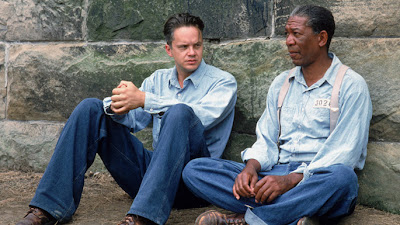If you like superhero movies at all, you’ll absolutely love Avengers. Marvel's The Avengers is everything, a super-hero movie could hope for - an exciting superhero team-up film packed with memorable moments. While superhero punch-ups and ear-splitting explosions may not seem like anything new, it's also the first ever movie to bring together the characters from multiple other standalone blockbusters (Iron Man, Thor, Captain America, Hulk), and then attempt to re-group them into a whole new movie franchise of its own.
And with director and co-writer Joss Whedon, they couldn’t be in better hands. He’s pulled off the tricky feat of arranging a large ensemble cast and giving everyone a chance to shine, and balancing the showy set pieces. It takes a while to get going, but once Whedon hits his stride, the film runs through a series of frantically entertaining sequences.
Plot
The evil Asgardian Loki (Tom Hiddleston) has arrived on Earth, intent on conquering humanity – and with an alien army to back him up. Six gifted protagonists – Iron Man (Robert Downey Jr), Dr Bruce Banner aka Hulk (Mark Ruffalo), Thor (Chris Hemsworth), Captain America (Chris Evans), Hawkeye (Jeremy Renner), and Black Widow (Scarlett Johansson) – have to conquer themselves, then resolve their heroic-tensions, and finally battle the villain. The villain has stolen a throbbing translucent blue object called the Tesseract, the all-powerful energy cube found at the bottom of the ocean in "Captain America." . It's an energy source that could destroy Earth. The movie could all be a complete mess, and honestly, the film could be qualified 'great' simply for not falling apart.
Analysis
It is battling egos of the superheroes that bring about most of the comedy and lead to effective actions scenes in which they act at cross purposes. The dialogue sparkles as brightly as the special effects "We are not a team," says ruthless Bruce Banner. "We are a time-bomb." Captain America tries to take down Tony Stark by telling him: "Big man in a suit of armor. Take that away and what are you?" Stark(Downey) replies cooly: "A genius, billionaire, playboy, philanthropist."The best lines, naturally, go to dryly sarcastic playboy billionaire Tony Stark/Iron Man (Robert Downey Jr.). Downey nearly runs away with this whole thing, it just goes to show once again how irresistibly charismatic he can be with the right kind of writing.
In theory, Dr Banner is on the team because of his brainy knowledge of gamma radiation. Mark Ruffalo actually makes Bruce and Hulk interesting, superior to the Eric Bana and Edward Norton incarnations, and his version cleverly locates the big green monster's secret not in the over-rehearsed subject of "anger management" but depression and self-hate. Chris Evans’ old-school Captain America is electric.
The movie also make us look forward to Black Widow, and Hawk Eye movies, as both Johansson and Renner add terrific texture to their characters. Chris Evans and Hemsworth make an intriguing muscle boy-duo, in the final battle. Through it all, Hiddleston is simply good.
Whedon’s skilled playfulness stops the movie from getting too self-referential. There’s far too much merry chaos going on, still Whedon keeps up the energy and keeps it good-humored. But, the best part of hiring Whedon to tackle this movie is the character interaction. The special effects is awesome. One of the best sequence in Avengers is, when Loki’s army pours in from another dimension, a unbroken action shot swoops through the battle to track each Avenger fighting against gigantic flying robo-fish and alien warriors riding space chariots.
Trailer
The Avengers - Imdb



























